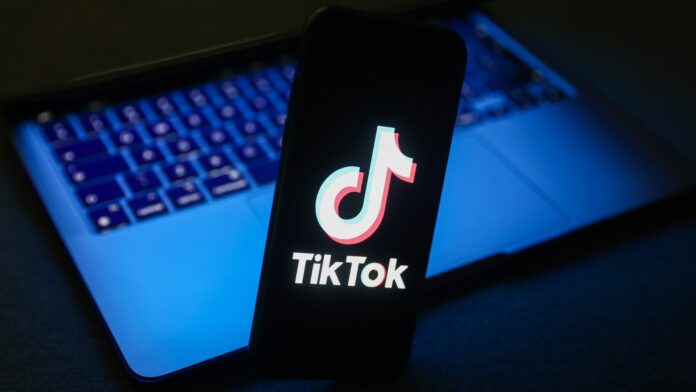TikTok and Bumble have joined Facebook and Instagram as partners of a free global tool to prevent the sharing of revenge porn on their platforms.
In a blog post(Opens in a new window) posted by SWGfL, a UK-based online safety non-profit that developed the tool, the NGO said the program, called StopNCII.org(Opens in a new window) (Stop Non-Consensual Intimate Image Abuse), is free to access by any adult who is concerned that someone may share intimate photos without their consent.
The move means that users of TikTok, Bumble, Facebook, or Instagram can send intimate images they’re worried might be shared, to content moderators so they can be “hashed” – meaning the photo is assigned a unique identifier or digital fingerprint. The hash, presented as a string of letters and numbers, rather than the image itself, is then shared among StopNCII’s partners. This means that anyone trying to upload the image on those platforms is blocked from doing so.
Since the tool first launched last year it has helped more than 12,000 people to hash more than 40,000 photos and videos, Bloomberg reports(Opens in a new window).
Speaking to Bloomberg, SWGfL’s CEO, David Wright said: “We now have four platforms, but we need thousands. The more we can get ingesting the hashes, the more we can reduce the threat and fear victims experience.”
Julie de Bailliencourt, Head of TikTok Product Policy said of the partnership announcement: “Our goal at TikTok is to foster a safe and supportive environment for our community, and there’s no place for this kind of malicious behavior or content on our platform. We’re proud to partner with StopNCII.org to strengthen efforts to stop the spread of non-consensual intimate imagery and better support victims.”
Meanwhile, Lisa Roman, Vice President of Public Policy at Bumble Inc. said: “At Bumble Inc., we’re on a mission to help create a world where all relationships are healthy and equitable. Bumble cares deeply about providing people, and particularly women, with the tools they need to feel empowered online. We aim – through our product features, policies, and partnerships to give people more control over their private images. Our participation in StopNCII.org is another important step in this direction.”
Revenge porn has become a growing global concern, with the victims disproportionately being women and girls. According to SWGfL, cases of revenge porn in the UK rose 40%(Opens in a new window) between 2020 and 2021, from 3,146 cases to 4,406.
Recommended by Our Editors
The ramifications of revenge porn can deeply disrupt the lives of those affected. In 2019 a then-sitting congresswoman was targeted(Opens in a new window) by revenge porn. Katie Hill, of California’s 25th district, sued after a nude picture of her was published by the conservative blog RedState and the Daily Mail in reports that alleged she had an affair with a campaign staffer.
The Democrat lost the revenge porn lawsuit after attorneys representing the media companies successfully argued(Opens in a new window) there was a “public interest” exemption in the law, and that they had a First Amendment right to publish newsworthy information about an elected official. Hill, who resigned from the House of Representatives days after the reports were published, sued for bankruptcy in July this year after being unable to pay her attorneys.
Wired found(Opens in a new window) that the intimate photos of Hill were still being shared on Facebook in the weeks after the Daily Mail and RedState reports were published, and had been missed by its automated systems and anti-revenge porn policies.
Get Our Best Stories!
Sign up for What’s New Now to get our top stories delivered to your inbox every morning.
This newsletter may contain advertising, deals, or affiliate links. Subscribing to a newsletter indicates your consent to our Terms of Use and Privacy Policy. You may unsubscribe from the newsletters at any time.
Hits: 0















